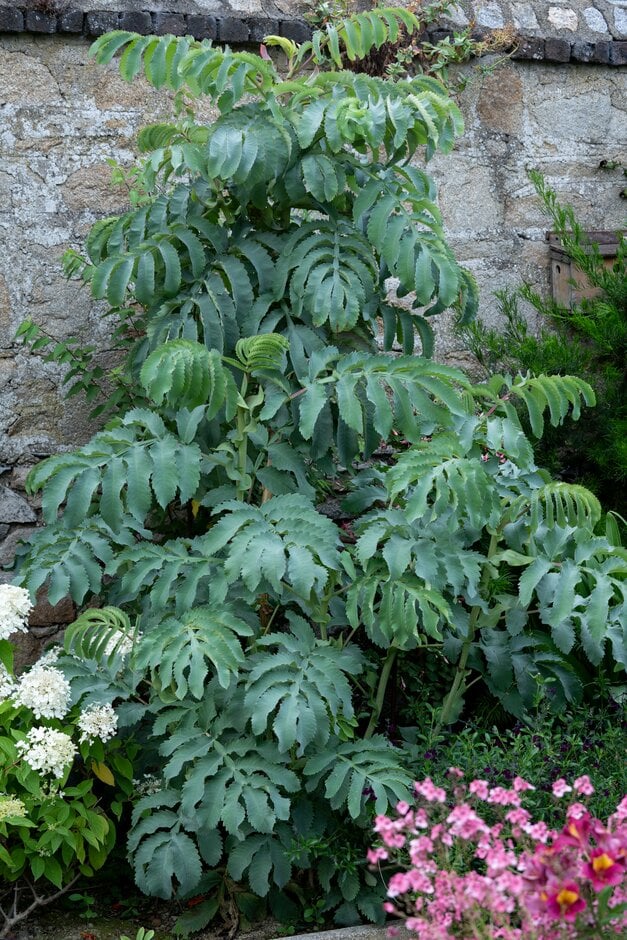Melianthus major 'Antonow's Blue'
great honey flower 'Antonow's Blue'
A large, evergreen sub-shrub to 2.5m with a few, more-or-less upright stems from the base with very large, divided, blue-grey-green leaves with about 15 jagged-edged leaflets and pink stalks. In a good summer will produce cylindrical flower spikes about 30cm long with dark red stems and very dark red flowers followed by inflated, pale green seedpods

Size
Ultimate height
1.5–2.5 metresTime to ultimate height
2–5 yearsUltimate spread
1.5–2.5 metresGrowing conditions
Moisture
Moist but well–drainedpH
Acid, Alkaline, NeutralColour & scent
| Stem | Flower | Foliage | Fruit | |
| Spring | Grey Silver Green Blue | |||
|---|---|---|---|---|
| Summer | Red | Grey Silver Green Blue | Green | |
| Autumn | Grey Silver Green Blue | Green | ||
| Winter | Grey Silver Green Blue |
Position
- Full sun
Aspect
South–facing or West–facing
Exposure
Sheltered Hardiness
H6Botanical details
- Family
- Francoaceae
- Native to GB / Ireland
- No
- Foliage
- Evergreen
- Habit
- Bushy
- Genus
Melianthus are evergreen shrubs, often grown as herbaceous perennials, with handsome pinnate leaves and small, tubular flowers in narrow, erect racemes
- Name status
Accepted
How to grow
Cultivation
Grow in moderately fertile, moist but well-drained soil in full sun. Shelter from cold, drying winds and provide a dry mulch in winter to protect from excessive winter wet. Alternatively, grow in a container and keep outside over the summer and bring under glass in late autumn
Propagation
Propagate by basal, softwood cuttings in spring or propagate by division in early spring
Suggested planting locations and garden types
- Architectural
- City and courtyard gardens
- Cottage and informal garden
- Mediterranean climate plants
- Patio and container plants
- Sub-tropical
- Flower borders and beds
- Wall side borders
Pruning
Pests
May be susceptible to red spider mite and glasshouse whitefly when grown under glass
Diseases
May be susceptible to honey fungus (rarely)
Get involved
The Royal Horticultural Society is the UK’s leading gardening charity. We aim to enrich everyone’s life through plants, and make the UK a greener and more beautiful place.